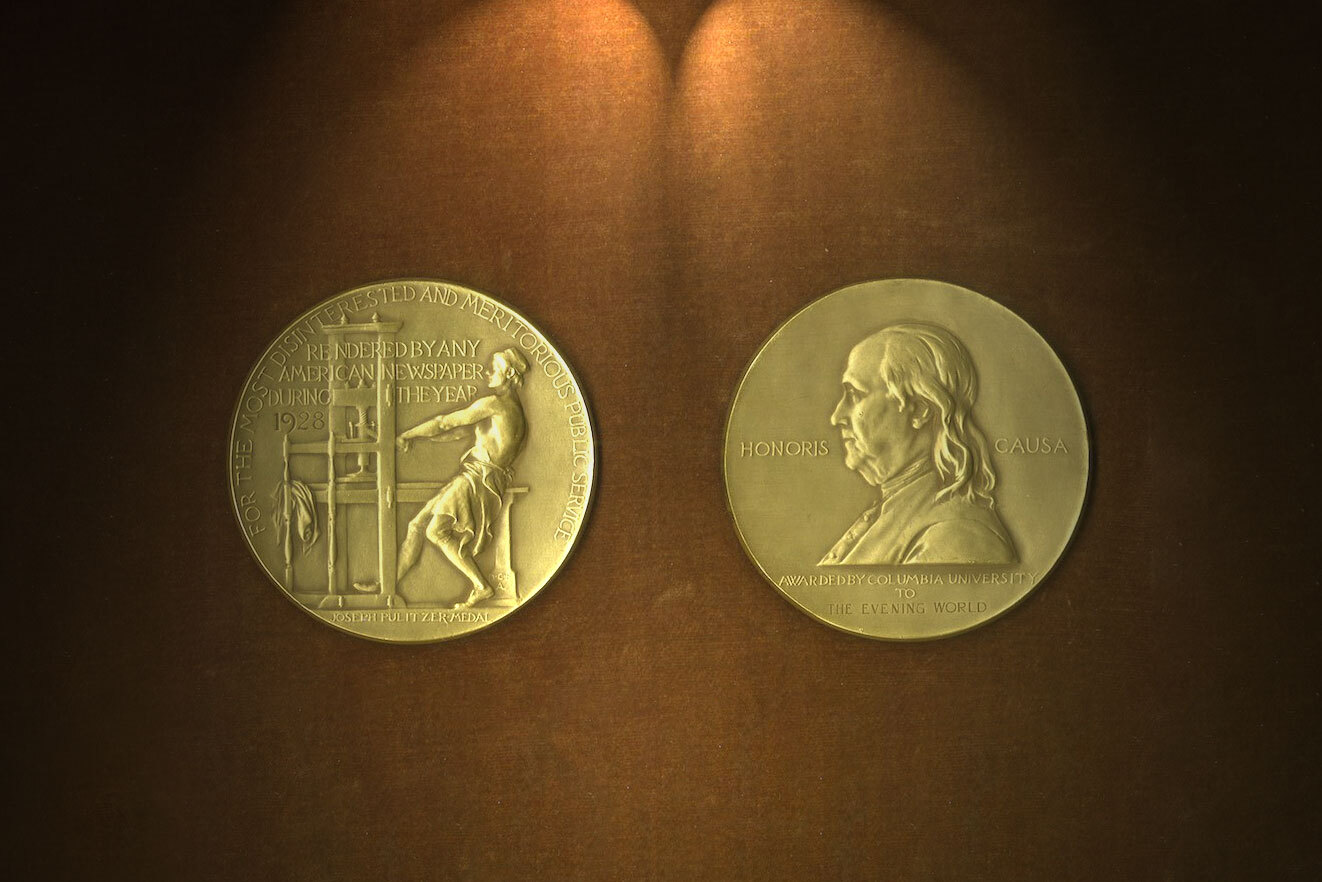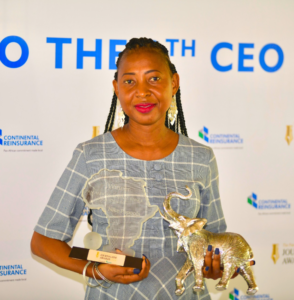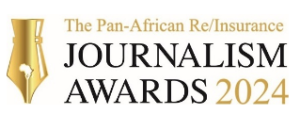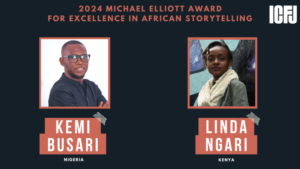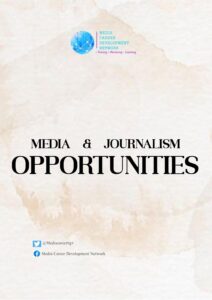One thing I like to pay attention to at media awards ceremonies is not only who the winners were, but the reasons they won.
I pay attention to the verdict of the judges who assessed the entries and why they preferred the winning entries out of the whole lot they looked through.
Some keywords usually stand out in citation for winners that anyone who plans to write an award-winning story should pay attention to.
The Pulitzer prize is regarded as the highest journalism award globally and winning any category of the award require really outstanding reporting and writing.
The 2021 edition of the award was held on June 11 and I took time to go through the citations which expectedly provided pointers for what it takes to win, not just the prestigious award, but any other award worth winning.
Check below, words in bold print in the citations and my comments.
Winner, Public Service Award
Judges verdict:
“For courageous, prescient and sweeping coverage of the coronavirus pandemic that exposed racial and economic inequities, government failures in the U.S. and beyond, and filled a data vacuum that helped local governments, healthcare providers, businesses and individuals to be better prepared and protected.
Comment:
*Journalism is public service at its best and we must keep this in mind in our reporting. It would however require a level of courage and holistic approach to cover some major issues that may throw up salient findings which authorities concerned may not be comfortable with.
Beyond just reporting, providing solutions like filling a data vacuum as New York Times did, is a higher level of journalism practice that journalists and media organisations should aspire to get to.
What issues are begging for this kind of treatment in your community, state or country?
Staff of the Star Tribune, Minneapolis, Minn.
Winner, Breaking News Reporting Award
Judges verdict:
For its urgent, authoritative and nuanced coverage of the death of George Floyd at the hands of police in Minneapolis and of the reverberations that followed.
Comment:
*Breaking news should not be about just breaking the news and moving on. Our audience needs to get a sense that we are very sure and know enough of what we are reporting. We need to help them understand the issue better by drawing attention to the nuances (minor distinction, subtlety or fine details).
Matt Rocheleau, Vernal Coleman, Laura Crimaldi, Evan Allen and Brendan McCarthy of The Boston Globe
Winner, Investigative Reporting Award
Judges verdict:
For reporting that uncovered a systematic failure by state governments to share information about dangerous truck drivers that could have kept them off the road, prompting immediate reforms.
Comment:
*The essence of investigation is to uncover unknown or hidden issues. This will be possible when journalists dig beyond what is already known and unearth findings that require prompt actions being taken by whoever or the organization concerned.
Andrew Chung, Lawrence Hurley, Andrea Januta, Jaimi Dowdell and Jackie Botts of Reuters
Winner, Explanatory Reporting Award
Judges verdict:
For an exhaustive examination, powered by a pioneering data analysis of U.S. federal court cases, of the obscure legal doctrine of “qualified immunity” and how it shields police who use excessive force from prosecution.
Comment:
The keyword here is exhaustive examination instead of superficial coverage. Every angle of the issue being reported is examined with the aid of analysis where necessary as it is in this case.
Winner, Explanatory Reporting Award
Judges verdict:
For a series of lucid, definitive pieces on the COVID-19 pandemic that anticipated the course of the disease, synthesized the complex challenges the country faced, illuminated the U.S. government’s failures and provided clear and accessible context for the scientific and human challenges it posed.
Comment:
*Again the keyword is lucid (transparently clear and easily understandable). The report does not leave you confused than what you knew about the issue. You finish reading the report and say “Now I understand what this is all about” So many issues begging for explanation in this age of information overload.
Kathleen McGrory and Neil Bedi of the Tampa Bay Times
Winner, Local Reporting Award
Judges verdict:
For resourceful, creative reporting that exposed how a powerful and politically connected sheriff built a secretive intelligence operation that harassed residents and used grades and child welfare records to profile schoolchildren.
Comment:
Local issues get obscured in the race by many organizations to focus more on national issues. For those who choose to cover them, the ability to creatively report will matter. How do you do who draw attention to what not many are paying attention to in local communities?
Winner, National Reporting Award
Judges verdict:
For a year-long investigation of K-9 units and the damage that police dogs inflict on Americans, including innocent citizens and police officers, prompting numerous statewide reforms.
Comment:
*One year-long investigation is going the whole hog which is what some investigations require. What is worth reporting is worth reporting well. It’s not surprising that the report culminated in numerous statewide reforms.
Megha Rajagopalan, Alison Killing and Christo Buschek of BuzzFeed News
Winner, International Reporting Award
Judges verdict:
For a series of clear and compelling stories that used satellite imagery and architectural expertise, as well as interviews with two dozen former prisoners, to identify a vast new infrastructure built by the Chinese government for the mass detention of Muslims. (Moved by the Board from the Explanatory Reporting category, where it was also entered and nominated.)
Comment:
*Telling a clear and compelling story doesn’t come easy. Every available channel must be used to justify claims in a report.
Mitchell S. Jackson, freelance contributor, Runner’s World
Winner, Features Writing Award
Judges verdict:
For a deeply affecting account of the killing of Ahmaud Arbery that combined vivid writing, thorough reporting and personal experience to shed light on systemic racism in America.
Comment:
*A well-written feature is not about stringing words together or having quotes that do not capture the imagination of the reader. It must be vivid and thorough with the personal experience of the writer.
Nadja Drost, freelance contributor, The California Sunday Magazine
Winner, Features Writing Award
Judges verdict:
For a brave and gripping account of global migration that documents a group’s journey on foot through the Darién Gap, one of the most dangerous migrant routes in the world.
Comment:
*What makes an outstanding journalist out is sometimes the extent they go in telling a story that needs to be told. Being brave is a major plus along with providing a gripping account that makes the reader want to read till the end and asking for more
Michael Paul Williams of the Richmond (Va.) Times-Dispatch
Winner, Commentary Award
Judges verdict:
For penetrating and historically insightful columns that guided Richmond, the former capital of the Confederacy, through the painful and complicated process of dismantling the city’s monuments to white supremacy.
Comment:
*Many can write, but only a few are masters of penetrating and historically insightful pieces which are a product of deep research and thorough examination of an issue.
Wesley Morris of The New York Times
Winner, Criticism Award
Judges verdict:
For unrelentingly relevant and deeply engaged criticism on the intersection of race and culture in America, written in a singular style, alternately playful and profound.
Comment:
*It can be frustrating writing on an issue and not getting the expected response, what to do in the public interest is not to relent but provide a relevant and deeply engaged point of views.
Robert Greene of the Los Angeles Times
Winner, Editorial Writing Award
Judges verdict:
For editorials on policing, bail reform, prisons and mental health that clearly and holistically examined the Los Angeles criminal justice system.
*Clearly and holistically
Photography Staff of Associated Press
Winner, Breaking News Photography Award
Judges verdict:
For a collection of photographs from multiple U.S. cities that cohesively captures the country’s response to the death of George Floyd.
Comment:
*In the chaos of reporting, a good photojournalist should be able to provide cohesive images that can fully tell stories for now and in the future.
Emilio Morenatti of Associated Press
Winner, Feature Photography Award
Judges verdict:
For a poignant series of photographs that takes viewers into the lives of the elderly in Spain struggling during the COVID-19 pandemic.
*poignant series
Lisa Hagen, Chris Haxel, Graham Smith and Robert Little of National Public Radio
Winner, Audio Reporting Award
Judges verdict:
For an investigative series on “no compromise” gun rights activists illuminated the profound differences and deepening schism between American conservatives.
Comment:
*illuminating
